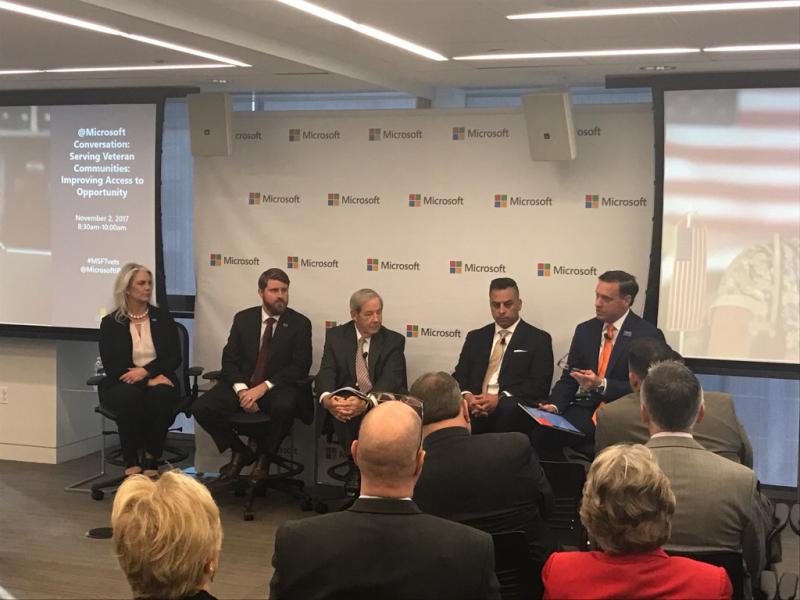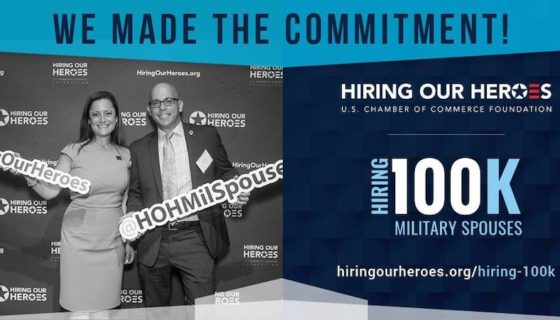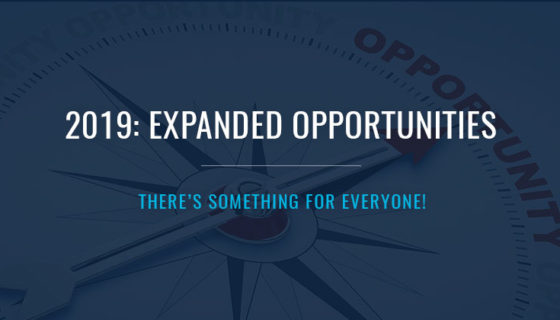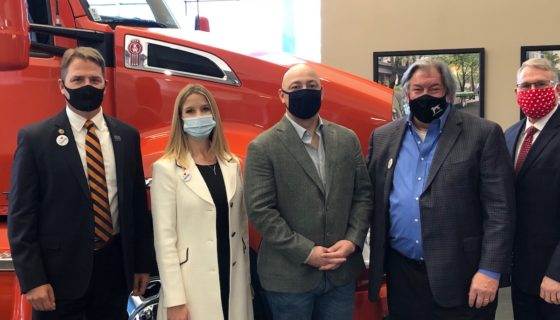Microsoft Hosts Business, Academic, Government Leaders to Discuss Veteran Opportunities

As many as 250,000 men and women leave the military each year, and most of them bring with them a wealth of talent and leadership skills. Yet despite their potential — and revitalized resources like the GI Bill — many veterans find it difficult to access job skills training, or gain entry into high-growth fields like IT.
To help address this issue, the Microsoft Innovation & Policy Center in Washington, D.C., hosted the “Serving Veteran Communities: Improving Access to Opportunity” panel discussion last Thursday between business leaders, public policymakers, college administrators, veterans and veterans advocacy groups. Discussion focused on how the public and private sectors can work together to find solutions — especially for veterans living in rural areas.
Throughout the discussion, a common refrain was that many vets in rural areas take jobs that pay well below what they could be earning. And panel member Jared Lyon of Student Veterans of America noted that veterans with degrees are generally more successful than their civilian counterparts. The consensus is that more needs to be done to ensure that veterans understand their options and can access available resources that help with job placement or to pursue further education.

Microsoft works with academic partners like St. Martin’s University and Embry-Riddle Aeronautical University to pave the way for transitioning service members who are starting the next chapter of their life. Programs like Microsoft Software & Systems Academy (MSSA) offer veterans an 18-week training program in high-demand technology careers. MSSA has on-base and community campuses in nearly a dozen locations across the U.S., with more on the way.
In his opening remarks, General (Ret.) John W. “Jack” Bergman, U.S. Representative for Michigan’s 1st Congressional District (R), recognized Microsoft for the impact it is making through MSSA, calling it a “springboard for the next steps in [a veteran’s] life.”
More than 240 companies consider MSSA to be a great source of qualified talent to help address the STEM skills gap, with more than 90 percent of veterans hired still employed after two years.
Chuck Hodges, senior director of Events and Program for the U.S. Chamber of Commerce Foundation’s Hiring Our Heroes program, said that over the past nine years, the veteran unemployment rate has dropped from double digits to around 4 percent. This reduction was the result of a lot of hard work and cooperation between private enterprise and many branches of government, including the Dept. of Defense, Dept. of Labor, the Veterans Administration, the Dept. of Agriculture and many others.
But as Chuck noted, “the mission isn’t over.”
There is much to be done to ensure that veterans have an equal shot at success as civilians. Business, education and government play a central role, and together we must continue looking for new ways to help transitioning service members continue to serve.
Whether hiring a veteran to fill your IT talent pipeline, leveraging their leadership skills to help drive your business or creating a new program that addresses a need at scale, there’s no more deserving group than the veteran community. And there’s no better time to do so than now.
Watch the full panel discussion here. To learn more about MSSA and how to partner with Microsoft Military Affairs, go to military.microsoft.com/mssa.



